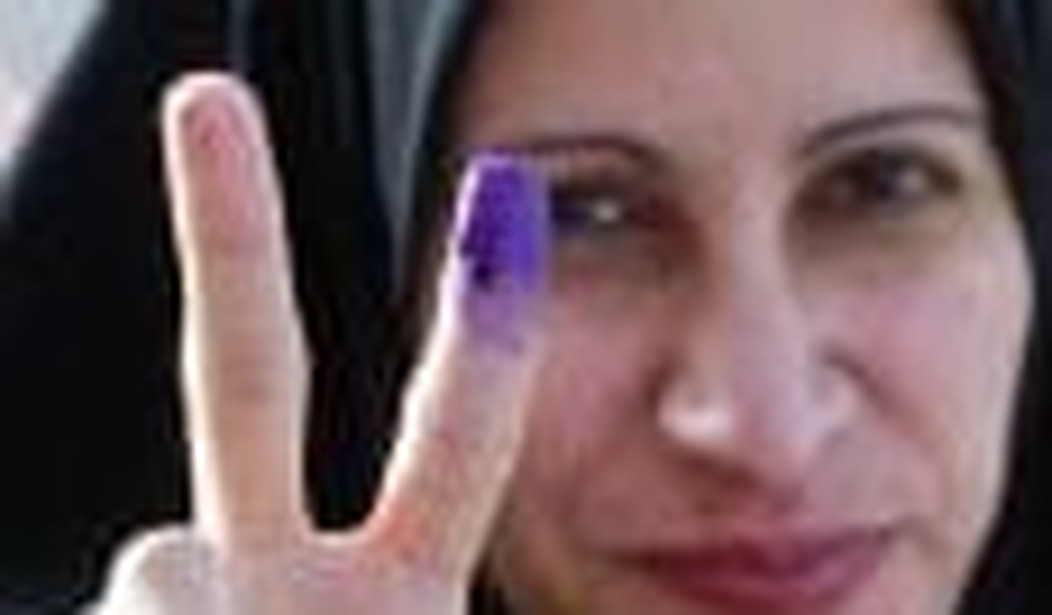Five years after the invasion of Iraq, punditry sophisticates want to reduce it to a simple American bull wreaking havoc upon an Iraqi paradise, arousing an Islamist monster and giving al-Qaeda new life in Mesopotamia. This nightmare will promptly end, the Democrats now promise, as soon as one of their own takes over the White House.
Specifically, Senator John Kerry predicted to the editorial board of the Standard-Times of New Bedford that a “president” Obama will have “the ability to help us bridge the divide of religious extremism, maybe even give power to moderate Islam to be able to stand up against” a radical misinterpretation of the religion.
This is a fairy tale indeed on many counts, not the least of which being that Obama is no Muslim brother and his being black gets him no special pass with Muslims, many of whom are busy massacring black Africans in Darfur or waging jihad upon Christian infidels such as Obama, who frequents his parish regularly — as we all found out.
Memory fails those lamenting the catastrophe brought down upon Iraq by a rampant American bull, as if the place had been a peacenik camp run by Saddam. In fact, less than a decade after butchering his way to power in 1968, Saddam and his henchmen turned the place into a museum of cruelty, a pictograph of savagery.
A decade later in 1980 Saddam waged war on Iran, taking a million lives on both sides over eight years. Before that he had killed some 200,000 Iraqis: dissidents of the left and the right, democrats, royalists, communists, writers and poets, men and women, many placed alive in acid tubs. Thousands of Iraqi Kurds were bombed with nerve gas, suffocating in their villages. By 1990 he invaded Kuwait on the way to Saudi Arabia. If anyone deserved perdition, Saddam and his henchmen are it.
True, the American project was mismanaged catastrophically by the Bush team of Rumsfeld and Co. But even while the messenger messed up, the message of freedom for all Iraqis landed and still resonates.
We who reported tons of stories from the region in those heady days wrote profusely of folks murmuring as they watched: “please, God, let us be next.” No one who was a witness to those events was blind to the fact that a grand majority of the Arab world’s 300 million folks from Morocco to Saudi Arabia at that moment did yearn to be rid of their Saddamist rulers. That dream has not died even as the Iraqi project fails. The Lebanese picked up the pieces of it in their Cedar revolt of 2005, which ended 30 years of Syrian military occupation before it fizzled under renewed Syrian pressure. Egyptians launched an effervescent “Kefaya” (enough) movement that fluttered for a while. Syrians still pray for the day they are rid of the Assad dynasty. Saudis look at the al-Sauds, asking for God to take them into his mercy sooner. To argue that Arabs have no democracy genes is brainless. The momentum may have slowed but those movements are alive.
When examined in the cool light of reality, the American project in Iraq shall be seen for the opening that it was: a call for an end to tyrannies administered by army generals or bearded religious sheikhs. Its evergreen message is that dictatorship is not “written” into the Arabs’ destiny.
Alas, for now all we can glean in the dense light of only five years is an opaque image tainted with blood. One could argue that the French revolution, which went on to inspire and shape notions of freedom and democracy in countless Western constitutions, also did not look too grand in its first decade, as the guillotine went up and down.
Iraq has fallen into the hands of majority rule, indeed by the Shiites who form over 60% of its population and the Kurds who represent 20% of its ethnic composition. A democracy smeared in blood it is. It will resonate with chaos until these majorities rise above their instincts of revenge.
It is true that the abused become abusers, but equally true are those smashed statues of a despot and his sons, aides, and accomplices symbolizing the new paradigms. Altogether the message has landed even if the messenger messed up. It is all in the perspective.
Youssef M. Ibrahim, a former Middle East correspondent for the New York Times and Energy Editor of the Wall Street Journal, is a freelance writer and Mideast political risk consultant based in New York.









Join the conversation as a VIP Member